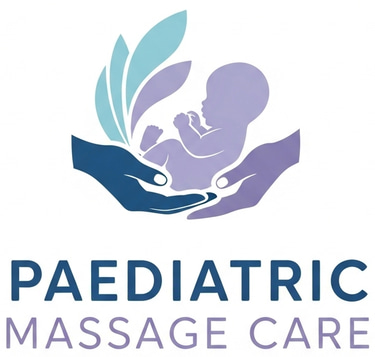Health and Community
Tailored Paediatric & Infant Massage Support


Evidence-based safe approach endorsed by researchers , scientists and healthcare professionals
Workshops & Presentations
Consultations & Support
Community Outreach
& Sponsorship
Our workshops, presentations, and consultations are designed to complement existing clinical care, providing evidence-based strategies that support families and improve outcomes. By integrating paediatric and infant massage practices into care pathways, we help healthcare providers enhance family engagement and wellbeing while supporting neonatal and paediatric development.
Research & Evidence
There is a wealth of research, including systematic reviews and clinical trials, demonstrating the benefits of paediatric and infant massage. These studies highlight improvements in neonatal outcomes, family engagement, maternal mental health, and overall developmental support.
Interactive sessions for hospitals, clinics, and community groups.
Customised content for neonatal, paediatric, and maternal health teams.
Collaborations to support families in need through tailored programs, workshops, and sponsorship initiatives.
Individual or team support to develop strategies for family engagement, program integration, and clinical support.
1
2
3
Key Findings at a Glance
Significant Weight Gain for Preterm Infants
Moderate-pressure massage has been shown to lead to an average daily weight gain of 63.04g in very low birth weight infants.¹Reduced Hospital Stays and Costs
Improved weight gain and feeding tolerance are associated with 3–6 days shorter hospital stays, resulting in an estimated $10,000 saving per infant.²Effective Pain Management
Multiple clinical trials report that massage significantly reduces procedural pain in hospitalised children, offering a valuable non-pharmacological intervention.³Benefits for Parents
Parents who performed massage with their infants reported lower stress, anxiety, and depression, while gaining confidence and strengthening attachment.⁴
References
Diego, M. A., Field, T., Hernandez-Reif, M., et al. (2005). Preterm infant massage elicits consistent increases in vagal activity and gastric motility that are associated with greater weight gain. Pediatrics, 115(3), 603–614. PubMed
Field, T., Hernandez-Reif, M., & Freedman, J. (2004). Stimulation programs for preterm infants reduce hospital stay.Infant Behavior & Development, 27(2), 163–171. Cost-benefit analysis indicated savings of approx. $10,000 per infant. ScienceDirect.
Pillai Riddell, R., Racine, N., Turcotte, K., et al. (2011). Non-pharmacological management of infant and young child procedural pain. Cochrane Database of Systematic Reviews. Massage interventions were among those shown to significantly reduce pain scores. Cochrane Library
Underdown, A., Barlow, J., Chung, V., & Stewart-Brown, S. (2006). Massage intervention for promoting mental and physical health in infants aged under six months. Cochrane Database of Systematic Reviews. Reported reduced parental stress, anxiety, and depression, alongside improved attachment. Cochrane Library
Below we have put together a concise review provides a foundation for confident decision-making about incorporating Paediatric Massage Care into regular patient care
Paediatric Massage Care: An Evidence Review
< DOWNLOAD >
This report synthesizes top - tier current (Sep 2025) research, delivering practical insights to help you:
Elevate Neonatal and Paediatric Clinical Care:
Access documented findings on improved outcomes, including faster growth rates and reduced hospital stays for preterm infants.Enhance Patient and Family Engagement:
Discover evidence-based strategies for improving parent-infant bonding, increasing parental confidence, and supporting maternal mental health.Seamlessly Integrate a New Modality:
Equip your healthcare team with the foundational knowledge needed to responsibly incorporate pediatric massage into holistic care plans.
